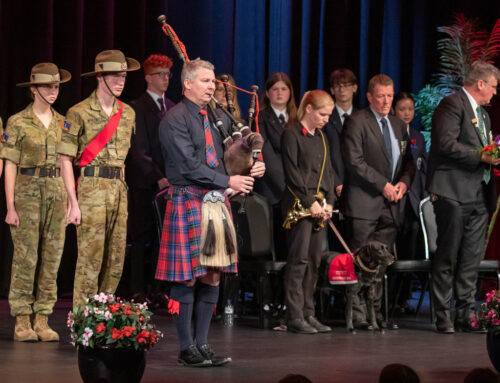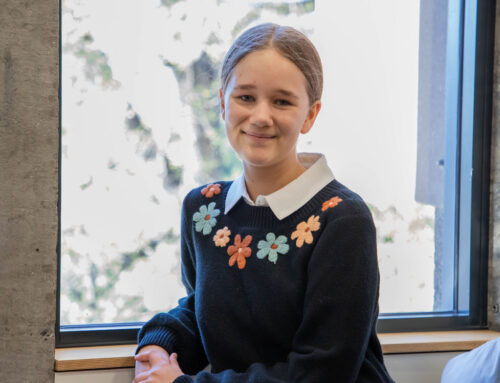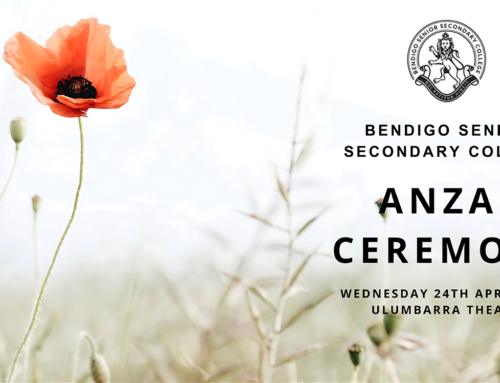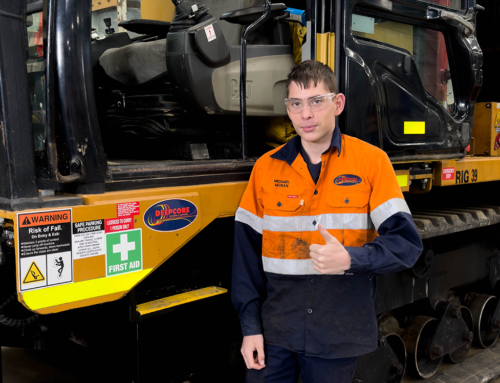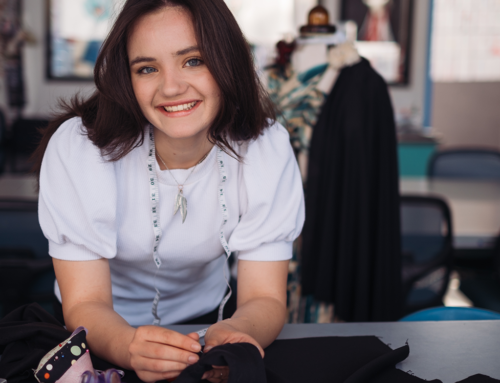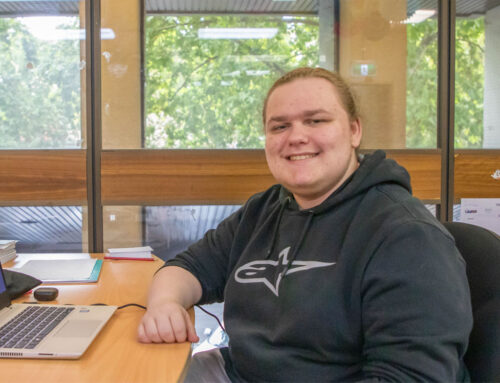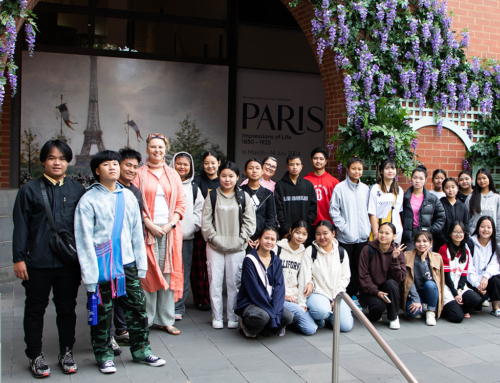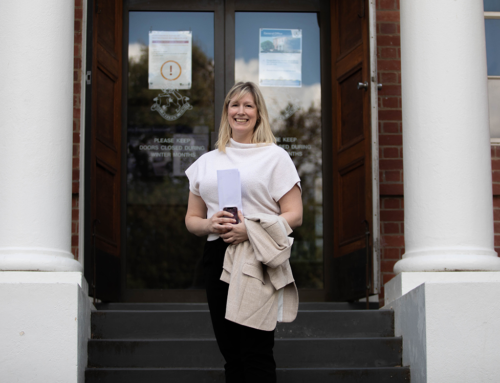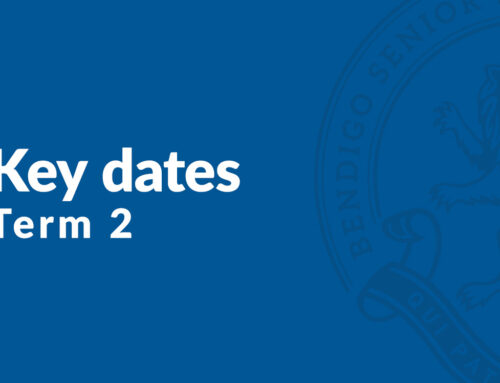While Year 11 student, Blodan Abduljabbar, recalls being happy to move to Bendigo Senior, she also remembers the huge adjustment during her first couple of weeks at the college.
Like the rest of her cohort, Boldan was moving out of Covid restrictions which had impacted her schooling experience hugely. She knew there was some serious catching up to do.
“I was a high-achiever in Year 8, but never good at homework,” she says. “Being forced to do what felt like constant homework for most of Years 9 and 10—where I couldn’t talk to my teachers as I worked—was just awful.
Blodan was isolated from friends and her wider family who still live in NSW.
“I couldn’t keep up,” she recalls. “My mental health was garbage”.
Despite the challenges, Blodan has embraced the opportunities the college offers.
“BSSC is a place for opening-up and understanding how other people experience life,” she says. “There is freedom to come and go and I love going to a café with friends after school. There’s also freedom to pick from a really broad range of classes and to connect with people who have different perspectives on life.”
Blodan describes her teachers as “so accommodating”.
“When I get overwhelmed they notice and totally understand,” she says.
This kind of thoughtfulness benefits any student. However, Blodan has also witnessed some of the worst of human behaviour and is especially grateful.
In 2010, she and her family arrived in Australia after a traumatic process fleeing the war in Iraq.
Initially settling in cosmopolitan Sydney, Blodan says she and her family were treated well.
Arriving in Bendigo in 2017, however, she experienced her first encounter with the underbelly of racism.
“I was called a ‘Muslim terrorist’ one day at school,” she explains. “It was wrong in every way, because I am a Mandaean—part of an ethnic and religious group whose traditional homelands have been Iraq and Iran for over two thousand years.
“I wonder if people just assume that everyone who lives in the Middle East is of the same ethnicity and religion?”
Traditionally highly-respected goldsmiths, lawyers and doctors, the population of Mandaeans in Iraq was 60,000 before the war.
The group has been ruthlessly persecuted by extremists in Iraq, tearing many communities apart and forcing them to leave Iraq as they seek safety for their families.
It’s estimated only around 5,000 Mandaeans remain in Iraq.
“I was born in Baghdad and the war impacted our family and the wider Mandaean community terribly,” Blodan says.
“I am so grateful to my family because they got us out of such a bad situation. We headed to northern Iraq and then crossed into Jordan before being granted humanitarian visas to come to Australia.”
Mandaean beliefs are based on knowledge and peace. How others are treated and how Mandaeans live their day-to-day lives is pivotal.
“The worst thing is to kill another person,” Blodan explains. “Some members of my family paid huge sums of money to avoid being conscripted into the Iraqi army.”
Blodan never met her Grandpa—a nurse during the war—who was shot by a soldier when her father was only twenty.
“I would love to be able to speak with him and ask about his life,” she reflects. “What his interests were and most of all, why he decided to follow the path of nursing.”
All the career opportunities that appeal most to Blodan involves helping people. She is planning on becoming a nurse too.
Studying VET Allied Health has provided her with a chance to experience the day-to-day role before committing to the TAFE nursing course.
Blodan’s favourite subject this year is Classical Studies.
The class is presently studying Lysistrata, an ancient Greek comedy by Aristophanes, in which the women of warring cities withhold sexual privileges from their husbands and lovers to force the men to negotiate peace—a strategy that inflames the battle between the sexes.
“It’s so well translated the humour is all preserved,” Blodan says. “It’s hilarious.”
Asked for a hot study tip, Blodan says she’s discovered having ‘white noise’ in the background increases her capacity to concentrate and get work done.
“But with Maths, it’s music I go for,” she says. “I love the music most other people don’t choose.”
Blodan is a fan of folk music and especially old sea shanties and the ‘work’ songs composed by Black slaves in the US.
“Some of the familiar sea shanties can be traced back to the 1600s,” she says.
Blodan also enjoys the violin, having played since Year 7, but has had very little time to play since starting VCE.
Her other interests include sewing and crocheting—particularly historical sewing techniques using old fabrics.
She also loves reading, especially essays, and says when she’s sewing or crocheting she often listens to video essays.
Blodan takes pride in doing small things well—like finishing a challenging piece of work or getting a crochet project absolutely correct.
If she could go back in time and offer some advice to her 12-year-old self, it would be a simple message.
“Everything is going to be fine,” I’d tell her. “Just chill!”


